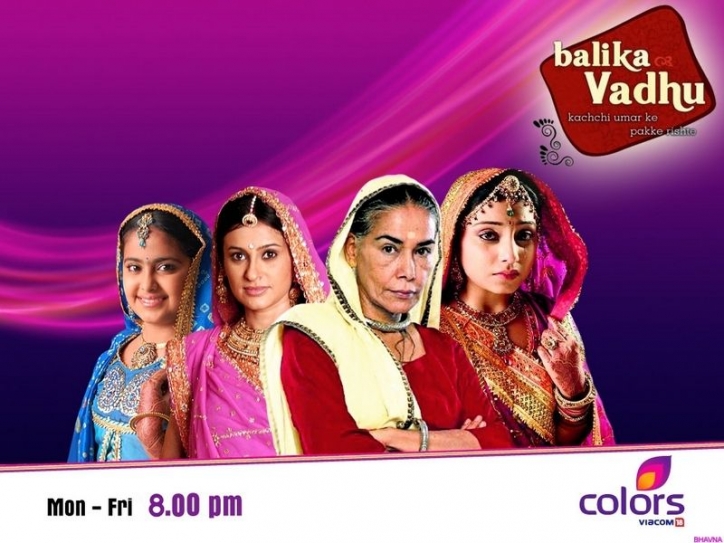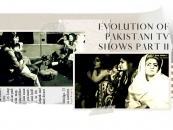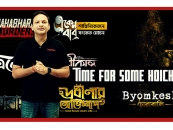
True Review - Social Change @ Prime Time: Balika Vadhu
by Piroj Wadia February 12 2014, 1:52 pm Estimated Reading Time: 4 mins, 6 secsThe makers of Balika Vadhu — Kachchi Umar Ke Pakke Rishte have reason to celebrate. Last week the daily series completed 1500 episodes. This is unprecedented, as it has hitherto been family melodramas like Kyunki Saas Bhi Kabhi Bahu Thi (1833) and Kahani Ghar Ghar Ki (1661) which have reached and crossed the mark. Till then India’s first soap opera Hum Log, which was first aired in 1984 and concluded with 154 episodes, was the longest running serial in the history of Indian television by the time it ended, which was then taken over by Tara (454) in 1997. Coincidentally, Star Plus was the broadcaster for KSBKT and KGGK, as it was for Kumkum- Ek Pyara Sa Bandhan (1449) and Kasauti Zindagii Kay (1423). Woh Rehne Waali Mehlon Ki (1387) was carried on Sahara TV. Balika Vadhu is the channel driver for Colors TV. While three came out of Ekta Kapoor’s Balaji Telefilms. Kumkum- Ek Pyara Sa Bandhan was a BAG production and Woh Rehne Waali Mehlon Ki was a Rajshri production.
Balika Vadhu produced by Sunjoy Wadhwa & Comall Sunjoy W has taken social responsibility right into living rooms across India at prime time. It is believed that in some villages, 8 pm is called Balika time. Set in Rajasthan, in Jaitsar and Udaipur, the earlier episodes followed the story of Anandi, a child bride and her boy groom Jagdish/Jagya. These episodes were touching as a high spirited playful Anandi is bound by tradition and Dadisa’s stern rule. The series has since moved on from depicting the child couple at first as playmates and friends, and when the teenage hormones needed to be bridled, Anandi is sent away to her parents till she is of age. A sensitive cautioning, to prevent the child bride from being subjected to premature motherhood.
Most unlike a sugary soap opera, it reveals the true layers of child marriages, and the repercussions it has on the couple. Often the wife is rejected by the husband, who lives away from the family homestead. She is left languishing, and has no standing in the family she came to as a child bride. Balika Vadhu puts across to viewers an altered mindset which opts for divorce in such cases and remarriage for both parties. In Anandi’s case, her progressive father-in-law Bhairav encourages her to study; in turn she campaigns for adult literacy for women. Bhairav’s daughter Sugna, a child widow marries Shyam at the latter’s insistence; thus setting Asha a child widow from that family free from bondage and get her remarried.
In the 1500 episodes, Balika Vadhu has run the entire gamut of social ills like child marriage, widow re-marraige, literacy among women and girls, making women in the lower strata financially independent and aware of banking. Adoption is the new aspect message as Anandi and Shiv adopt a physically challenged boy Amol; and Jagdish adopts Manu, Ganga’s son by her earlier marriage; The signal’s clear, it is good to adopt, better still a child with a challenge. Another signal which could be sent out: adopt a girl child.
But nothing moves without the consent of the indomitable matriarch Kalyani Devi/Dadisa. A veritable autocrat, initially she was shown as a heartless woman who is very selfish and a girl child wasn’t too welcome. She’s as orthodox as they come, Dadisa represents a prevailing mindset which needs to be broken. Each time Dadisa accepts change and lets her guard down the village folk of Jaitsar accept it as their own. As Kalyani Devi is the law. A standout character, she embodies harsh tradition, but slowly with her own reasoning accepts change and lets go the shackles of conservatism. There have been moments when we see the iron clad hand almost strike out and later it reaches out in affection. Surekha Sikri’s performance is nothing less than tour de force. The rest of the cast complement her.
The story of Balika Vadhu was actually written in 1992, and even offered to Doordarshan writer Purnendru Shekhar once revealed in an interview. He grew up in Rajasthan, and witnessed how children were forced or tricked into early marriages and the trauma that followed. It is then no wonder that Balika Vadhu is no product of a fertile imagination.
Purnendu Shekhar and his team of writers keep on their toes as they look for newer social ills or messages to weave in – as we go to press, as a newspaper would have said, the emerging element is date rape.





-173X130.jpg)


-173X130.jpg)
-173X130.jpg)
_(7)-173X130.jpg)
_(2)-173X130.jpg)
_(3)-173X130.jpg)